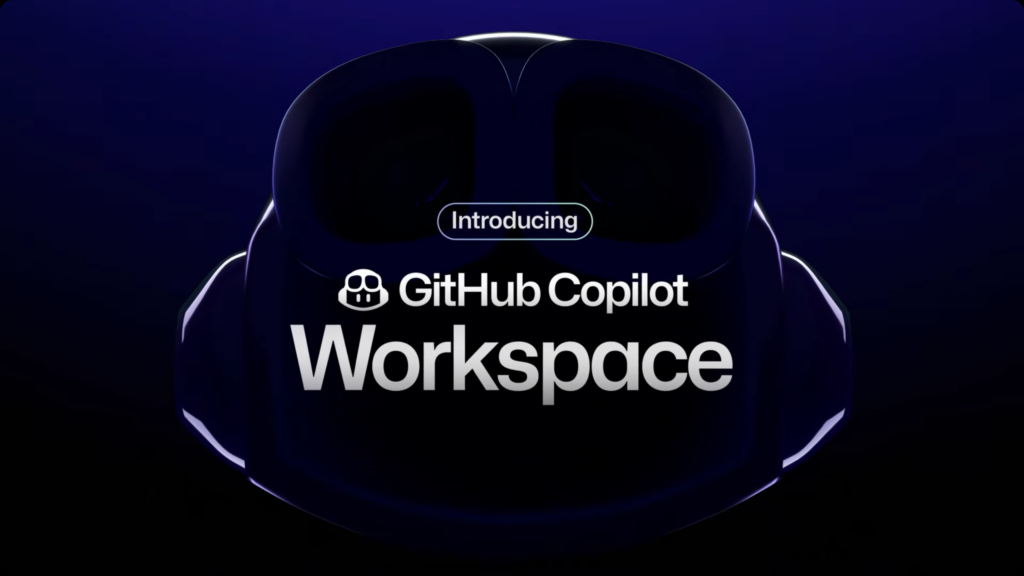GitHub Copilot has expanded yet again. Workspace, currently in Technical Preview, promises AI support at every step of the development process. What exactly does it involve?
GitHub Copilot made its debut in October 2021. Since then, the AI development platform has continued to iterate. It is now GPT-4 enabled and includes many targeted AI features via “Copilot X”. Everything from code generation to answering questions on technical documentation to optimizing pull requests is already in the Copilot suite. Now GitHub is adding to the feature set once again. Copilot Workspace software provides comprehensive AI support from project inception. It seems like it should keep software engineers awake, but what exactly does Workspace do?
at work
Workspace can take a look at the current state of a project on GitHub and suggest changes. It briefly explains these changes in natural language. The “copilot-native” development environment appears to be primarily configured to optimize existing codebases. However, the GitHub team also suggests that developers can come up with a brand new project with the help of the tool. Workspace programming can develop a general idea by creating an initial bit of code. Other GitHub Copilot features are then ready to tackle any other aspect of software development.
A suggested workspace use case is adding AI to Pong. The workspace starts by answering a question that appears on the GitHub page: Does Pong already have AI? After a brief analysis, the workspace tool generates an answer (in this case: no, there isn't). The user can then add additional information to it on a point-by-point basis. Then, the workspace generates a plan that the user can expand on again. With an additional push of a button, the workspace edits the files to make the change.
Thus the user is always in control. The thought process of the workspace can also be clearly followed. If it unexpectedly goes in the wrong direction (which sometimes happens with any GenAI tool), it can be corrected. The only confusing thing is the under-the-hood AI model itself, developed in collaboration with OpenAI and GitHub's parent Microsoft.
Workspace builds on previous developments within GitHub Copilot. For example, GitHub Copilot Chat appeared several months ago and essentially offers a repackaged version of the stand-alone features that make up Copilot X. Things like code reviews, pull requests, writing documentation – AI support has long been offered in the GitHub Copilot suite. in these areas.
A GitHub developer at YCombinator says the emphasis of the workspace is to act as a “rubber duck” or “thought partner”. “We also find that taking an idea and making it more concrete/solid is very helpful.” They argue that workspace sessions generate discussion within the team and facilitate the implementation step. All with just a few clicks (and on a smartphone too).
It's very reminiscent of Google CEO Sundar Pichai's explanation when Google debuted Bard (now Gemini) last year. There, too, programming support was promised, albeit in a limited way. The promise was essentially to act as a “thought partner” and “bounce ideas”. GitHub Copilot Workspace itself limits tasks to coding to be more precise, but commitments are just as important as with Bard.
Is AI programming the future?
Despite these nuances, many news organizations bombard the topic of AI programming support. For example, GitHub Copilot has been called the “automation of the coding industry” startup. Problems abound, however: allegations of plagiarism damaged the AI tool's reputation shortly after its launch.
Since then, the limitations of AI code have become increasingly clear. For example, debugging generated code is considered particularly troublesome, as AI often makes very different mistakes than a human. Also, large codebases are not suitable for analysis, because (current) AI models have a limited context window (which is the AI's short-term memory). Support is limited to specific tasks, minor fixes, and fixing pre-defined issues. The fact that Copilot Workspace focuses specifically on this task is therefore not surprising. Even starting a project, as interpretable as it can be, gives the AI a chance to freewheel harmlessly with ideas as a “thought partner.”
No Devin, no worries.
What is Copilot Workspace? no, is a complete AI software engineer. The implementation of GenAI within GitHub is beyond modular, even Workspace and Copilot Chat unify various AI components. Therefore, Workspace is not meant to complete the entire codebase with a few clicks.
The promises are more tangible than what we saw with Devin from startup Cognition AI. It debuted in March as the “first AI software engineer,” though it's still in beta. Once this tool sees the light of day, we'll be able to see its impressive standards and know if software engineers should really look for another job. At least Workspace doesn't work on this proposition. Ultimately, humans still have to come up with good ideas on their own, with AI having a hand.
Also read: Dion is the first AI software engineer: Should developers be worried?
